
BRIV+ 50 Tablet 10's
Manufacturer
Msn Laboratories Pvt Ltd
Salt Composition
Brivaracetam 50 mg
Key Information
Short Description
Briv + 50mg Tablet is an anti-epileptic medicine used to treat seizures (fits) in epilepsy. It can be used alone or along with other medicines.
Dosage Form
Tablet
Introduction
Briv + 50mg Tablet suppresses the abnormal electrical activity in the brain. You can take it regularly with or without food but try to take it at the same time each day to get the most benefit. The dose and how often you need it will be decided by your doctor so that you get the right amount to control your seizures. It may be increased gradually. It is generally advised as a long-term treatment. You should continue taking it for as long as your doctor has told you to even if you feel well. If you stop or miss doses your seizures could get worse. Do not stop taking this medicine unless your doctor tells you to. This is because stopping the medicine suddenly could make your seizures worse.
Directions for Use
Take this medicine in the dose and duration as advised by your doctor. Swallow it as a whole. Do not chew, crush or break it. Briv + 50mg Tablet may be taken with or without food but it is better to take it at a fixed time.
How it works
Briv + 50mg Tablet is an antiepileptic medication. It works by attaching itself to specific sites (SV2A) on the surfaces of nerve cells. This suppresses the abnormal activity of the nerve cells in the brain and prevents the spread of electrical signals that cause seizures.
Quick Tips
Briv + 50mg Tablet should be taken regularly as directed by your doctor as missing doses can trigger seizures. Do not change the brand of your medicine and make sure that you have sufficient amount of medicine present with you. It may cause sleepiness or drowsiness. If this happens to you do not drive or use machinery. Inform your doctor if you have a history of liver disease, kidney disease or drug abuse. Do not stop using Briv + 50mg Tablet without talking to your doctor even if you feel better.
Related Medicines
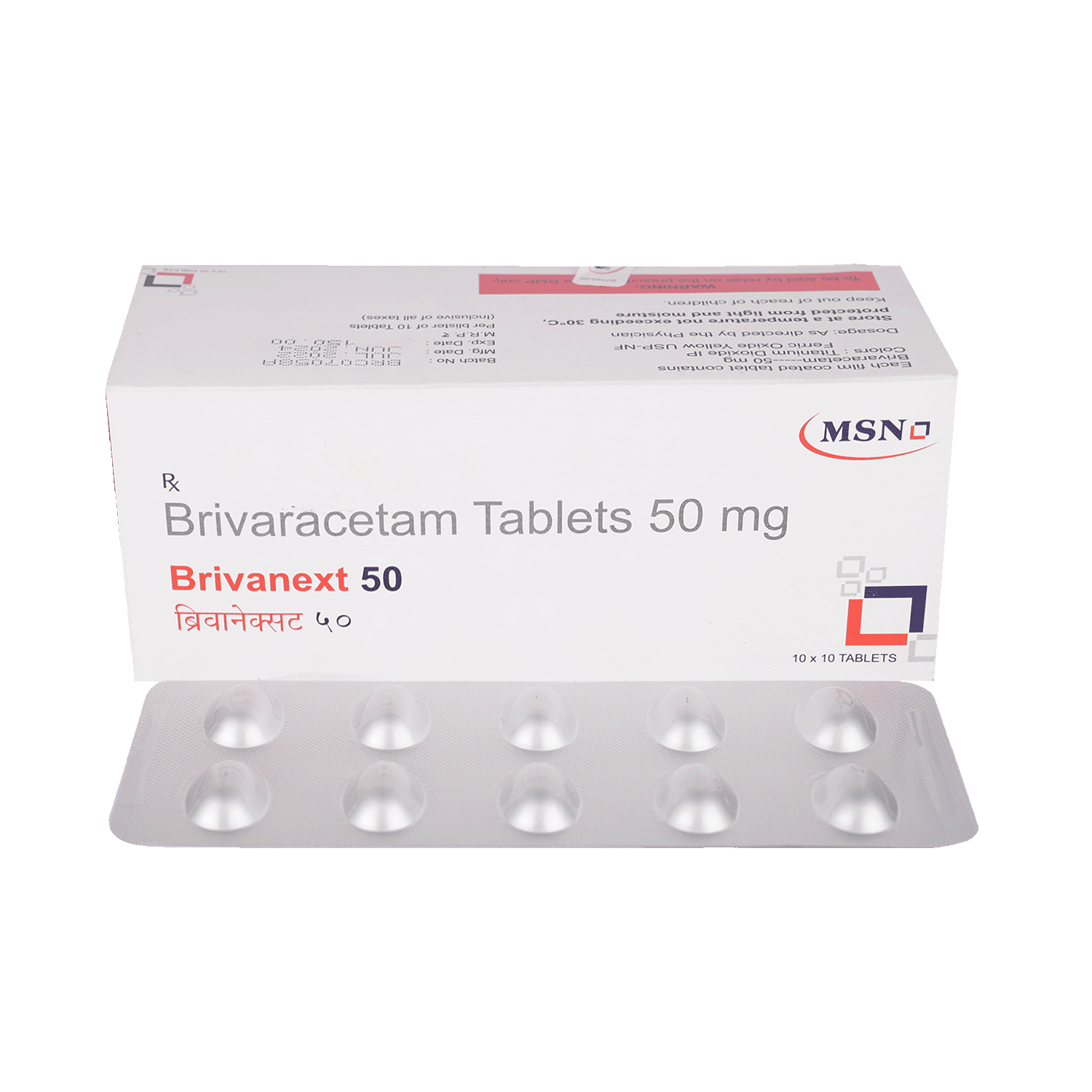
Brivanext 50mg Tablet

Brevipil 50 Tablet
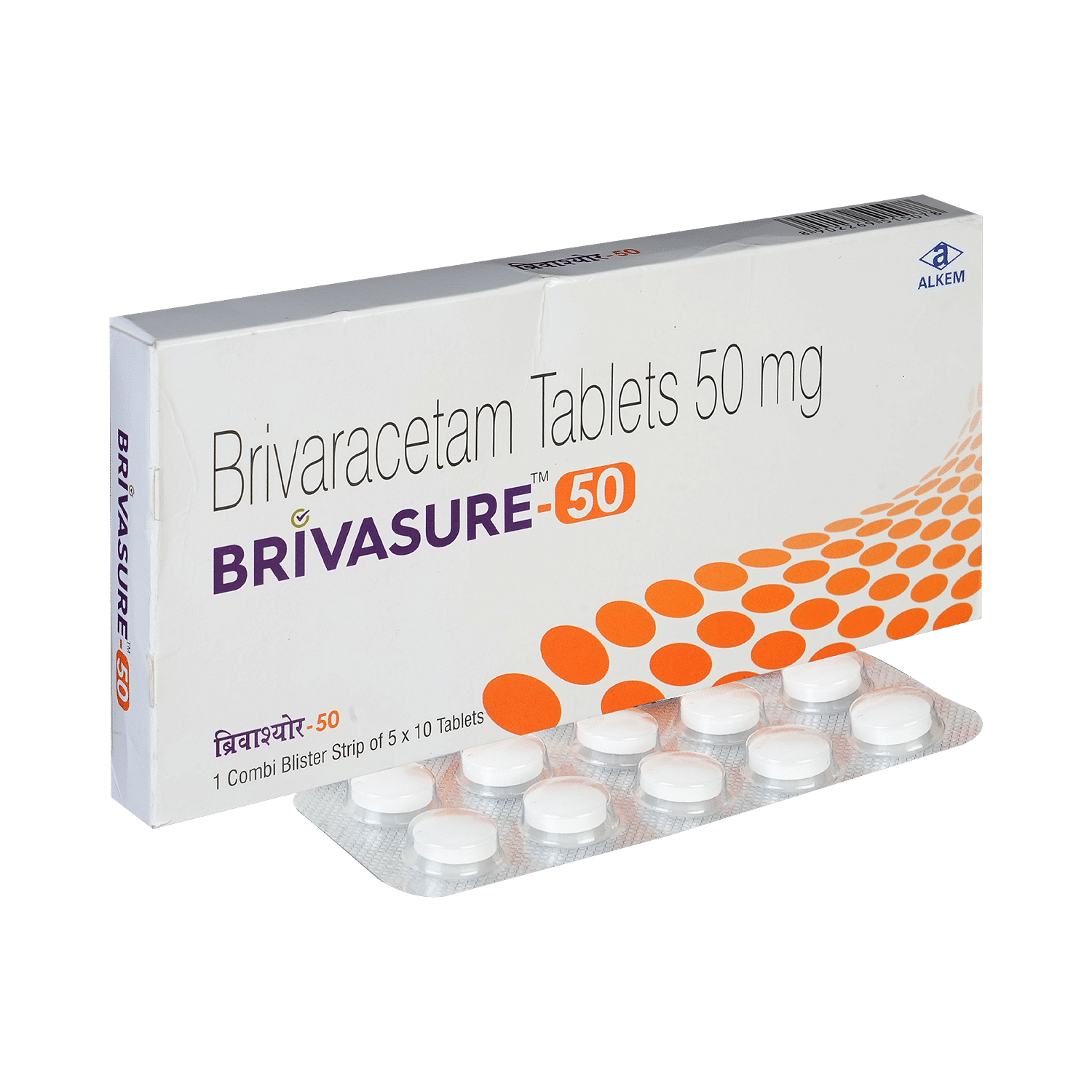
Brivasure 50 Tablet
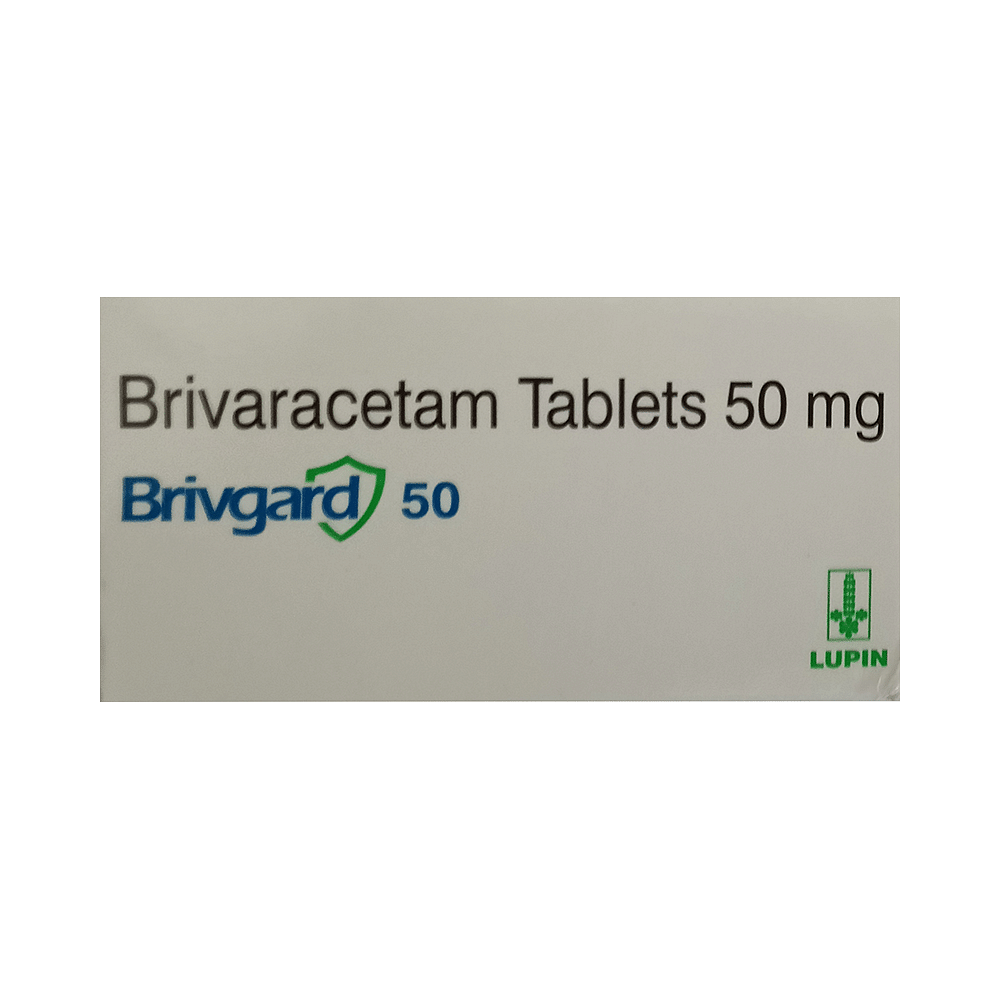
Brivgard 50 Tablet
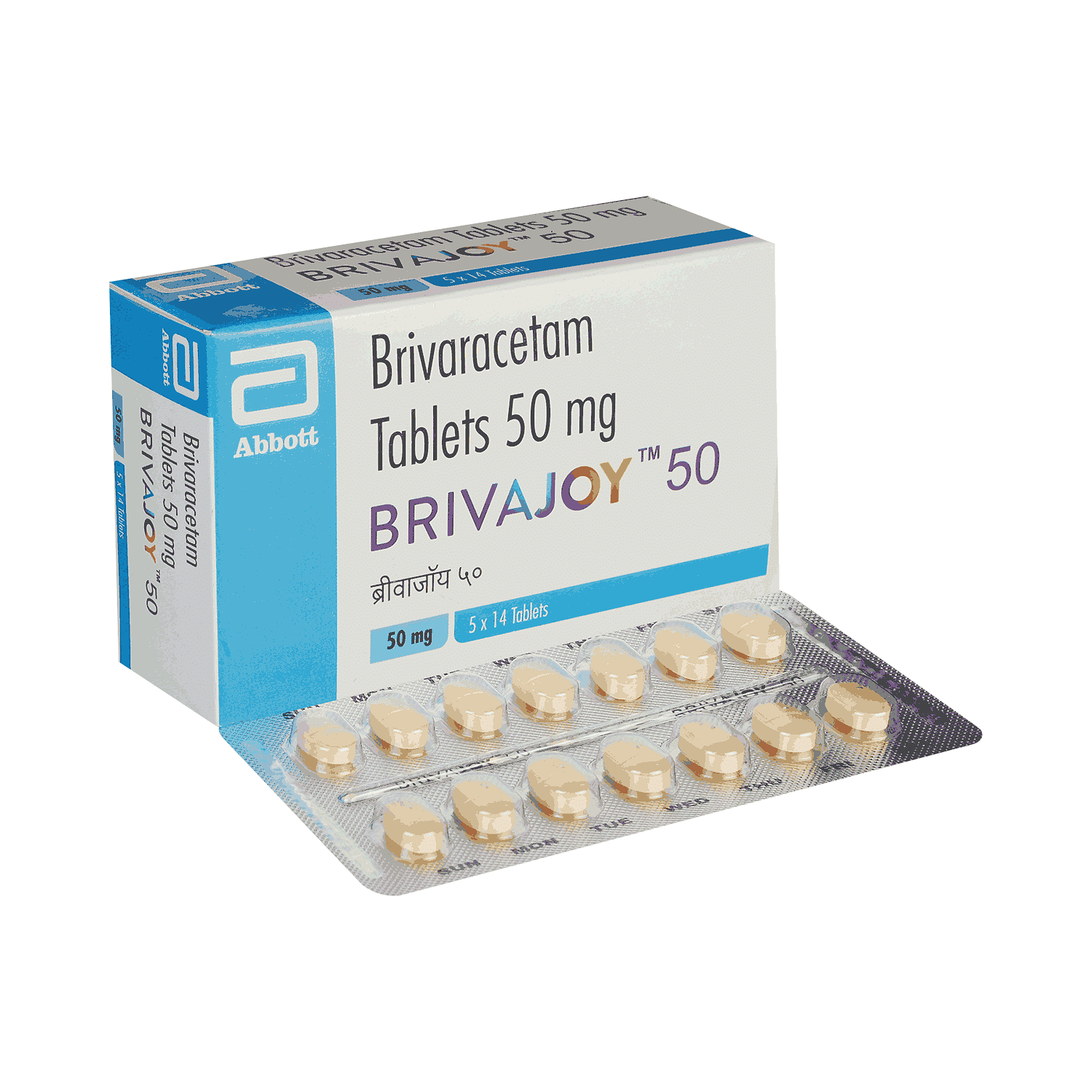
Brivajoy 50 Tablet
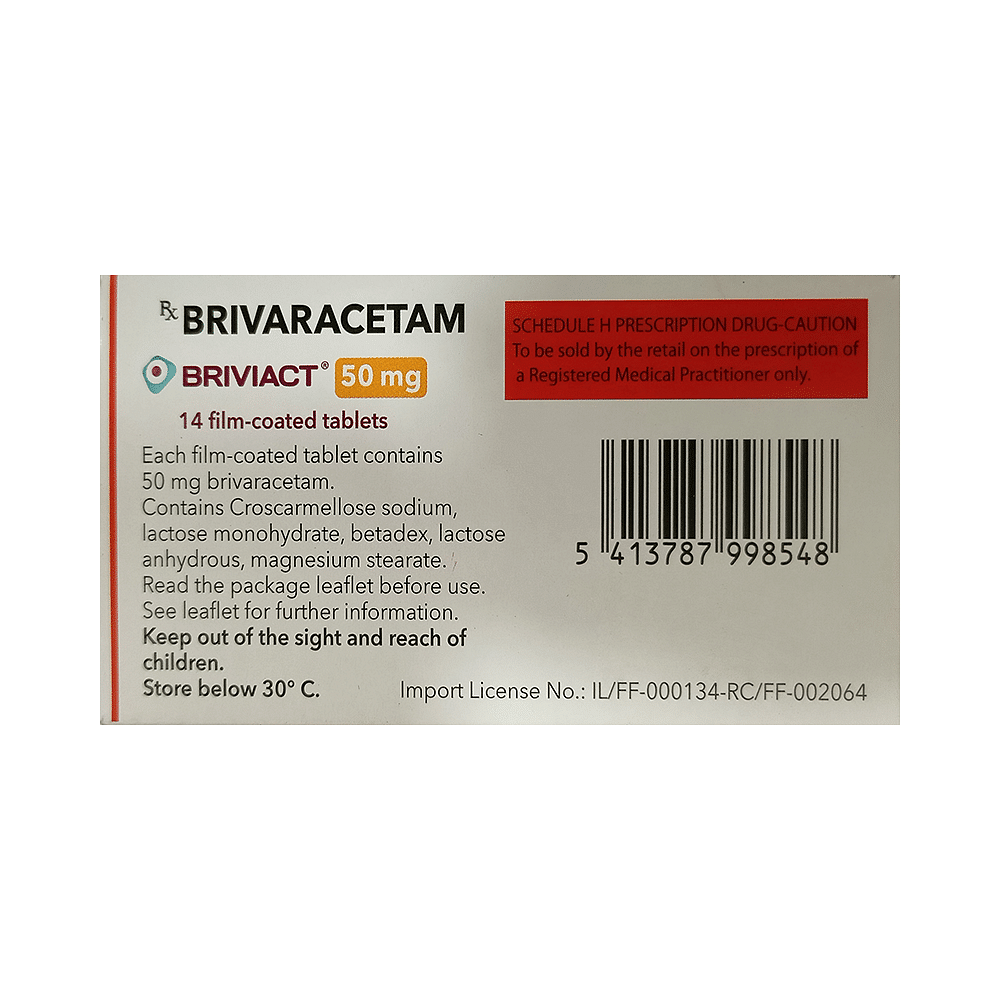
Briviact 50mg Tablet

Britzilam 50 Tablet
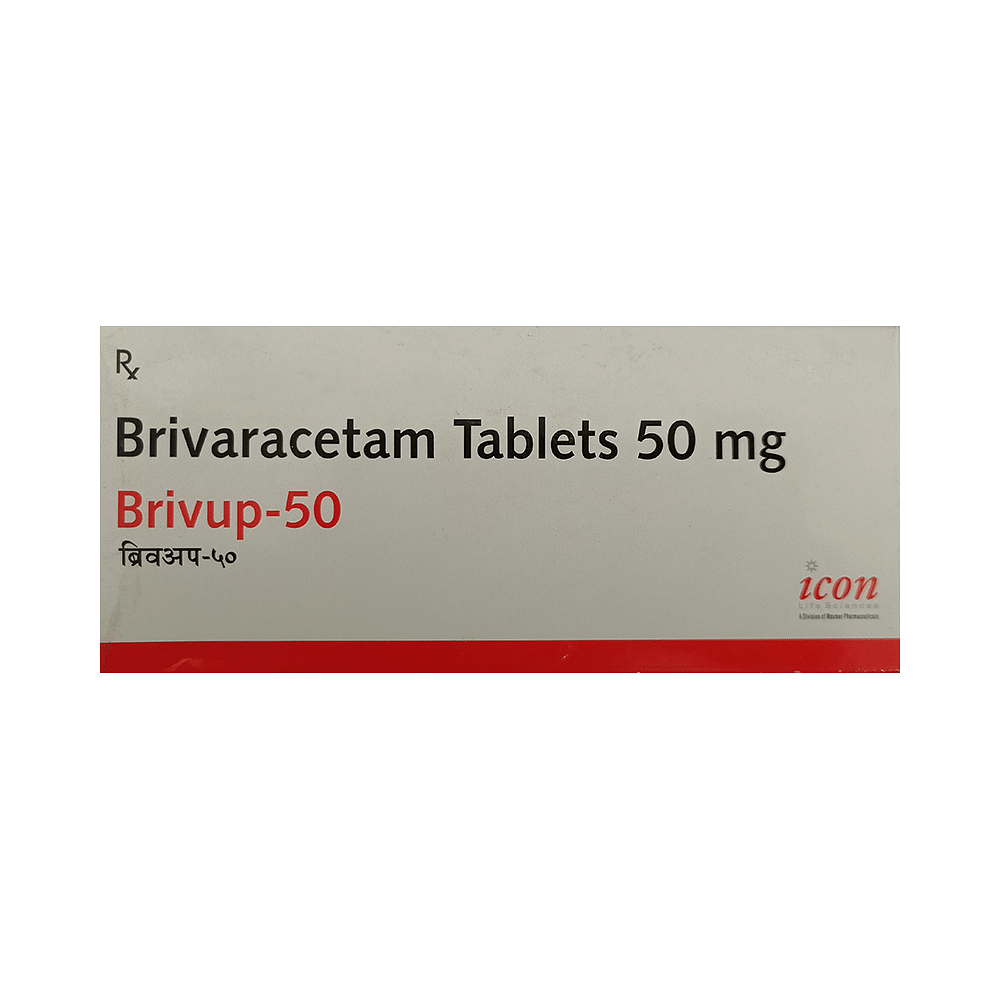
Brivup 50 Tablet

Brivazen 50mg Tablet

Britam 50mg Tablet
Frequently asked questions
Can I crush and take Briv + 50mg Tablet?
No, do not crush Briv + 50mg Tablet. It is recommended that you swallow the whole tablet with a glass of water. You can take Briv + 50mg Tablet with or without food, preferably at the same time.
What if I miss a dose of Briv + 50mg Tablet?
If you have missed a dose of Briv + 50mg Tablet, take it as soon as you remember. However, if it is almost time for your next dose, skip the missed dose and take the next scheduled dose. Do not double the dose to make up for the missed one as this may increase the chances of developing side effects.
Can I stop taking Briv + 50mg Tablet if I start feeling better?
No, Briv + 50mg Tablet should not be stopped even if you start feeling better. Suddenly stopping the medicine may cause continuous seizures which can be difficult to control. You should consult your doctor who will advise you to discontinue Briv + 50mg Tablet gradually.
What should I avoid while taking Briv + 50mg Tablet?
Briv + 50mg Tablet may cause drowsiness, tiredness, dizziness, and problems with your balance and coordination. Therefore, you should avoid driving or operating heavy machinery until you know how the medicine affects you. Also, you should avoid alcohol while taking this medication as you may experience unwanted effects on memory and attention.
What if I accidentally take more than the recommended dose of Briv + 50mg Tablet?
If you take more than the recommended dose of Briv + 50mg Tablet, you may experience a spinning sensation, balance disorder, fatigue, nausea, double vision, anxiety and slow heartbeat. Consult your doctor immediately if you experience any such symptoms.
How can I watch for early symptoms of suicidal thoughts and actions?
You should pay attention to any changes, especially sudden changes in mood, behaviors, thoughts, or feelings. Be aware of common warning signs that might be a signal for the risk of suicide. Some of these include talking or thinking about hurting yourself or ending your life, withdrawing from friends and family, becoming depressed or worsening of your depression, or becoming preoccupied with death and dying. Never miss an appointment with your doctor and stay connected with the doctor even between visits.


